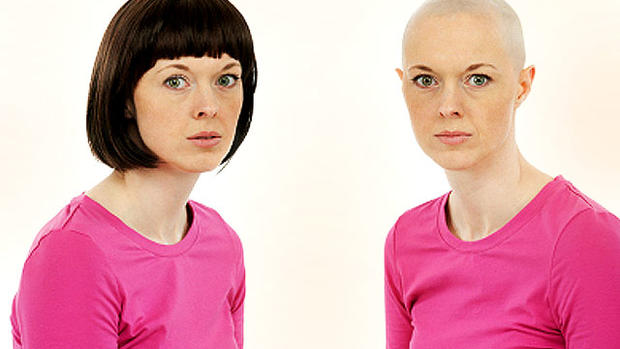More genetic "hot spots" linked to breast cancer risk
Breast cancer is a complex disease and more research is finding that genetics may play a bigger role than previously thought. A new study has identified another 15 genetic "hot spots" in a person's DNA that can influence a woman's risk of developing the disease.
For the study, published in Nature Genetics, researchers analyzed the genomes of 120,000 women of European ancestry. The study included both women who did and did not have breast cancer. Through their analysis, the researchers identified 15 new variations -- or genetic misspellings -- that likely influence a woman's risk for breast cancer.
"The goal of the study is to identify which women are going to get breast cancer or have a higher chance of it because we don't want to treat everybody as one," explained CBS News medical contributor Dr. David Agus. "The goal is not 'one size fits all,' but to personalize. We can identify it early. And then women who are at the highest risk, who have a lot of these DNA markers, we can work on prevention. We have drugs now that can prevent breast cancer by 70 or 80 percent. We don't use them much but we can in women who are at higher risk."
Approximately 5 percent of breast cancer incidences are a result of faulty genes which more than double the risk for the disease. Some mutations make women as much as three times more likely to develop breast cancer. So far researchers have identified a total of 90 of these genetic variations, though there are likely to be more. The researchers speculate that the more biomarkers a woman has, the higher her risk is for developing the disease.
Many patients are familiar with the BRCA 1 and BRCA 2 genetic mutations, which can raise a woman's risk by as much as 80 percent. Many women who test positive for this genetic variation opt to have prophylactic mastectomy and oophorectomy (surgery to remove the ovaries). These biomarkers are also linked to an increased risk for certain types of pancreatic, ovarian, colon and thyroid cancers.
"What this is saying is maybe you need to start earlier in some women and maybe you need to screen more in depth and not just do an exam but maybe do an MRI because these women at higher risk require a different kind of screening," said Agus.
These findings could help physicians determine which patients need to start breast cancer screening at an earlier age. Many doctors follow the guidelines laid out by the U.S. Preventive Services Task Force, which recommends women begin breast cancer screening every other year with mammography starting at age 50, but for some patients that may be too late.
"This is the future, which is going to be you spit into a tube and we look at your DNA and we start to see your risk for diseases and we identify who needs to be screened early, who needs to go on aggressive prevention," said Agus. "It's terrifying, but knowledge is power and you are in charge when you have that knowledge."
